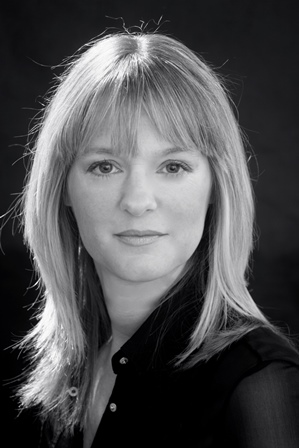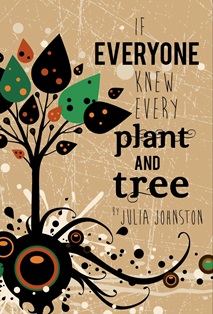The second in a series of five blog posts by Julia Johnston (author of If Everyone Knew Every Plant And Tree), charting her journey from preparing to submit her manuscript to agents, through to the self-publishing of her debut novel.

“Yay! I’ve finished my novel… I think.”
You’ve arrived at the open sea—the end—with your ‘book’ a sea-worthy vessel. Now, to test the water. Time to submit your completed manuscript to agents. We all want a literary agent with a view to securing a traditional publisher… don’t we?
I dutifully bought the Writers’ and Artists’ Yearbook and the Writers’ Handbook and together with t’internet, compiled a list of agents I might approach. I researched their background and crucially, the sort of manuscripts and writers they take on. Would-be published authors are warned to look forward to a nice little pile of politely-worded rejection letters. Yet we still send submissions to carefully selected, gorgeous, hugely discerning literary agents. Then you wait… and wait… and wait… And just when you’ve convinced yourself that you weren’t even worth the time or effort to be formally rejected, you start hearing back. Of my twelve submissions (in at least two batches), two took over a year to reply, but I did hear back from all of them. The waiting is truly exasperating, but inevitable.
I’d been toying with the idea of approaching a literary consultant to critique my MS, and in a ridiculous skewing of natural order, sent my novel off to one just AFTER submitting to the first few agents. It was a wonderfully useful and highly recommended exercise, though when I first read the notes, I felt like giving up. To my amazement, it started with, ‘I was really taken by the original and clever voice and very competent writing. I was actually quite blown away.’ To cut to the quick, she didn’t think I’d managed to sustain the voice and therefore, the readers’ interest. It’s vital to develop a thick skin at this point as it’s givvy-uppy time.
The detailed analysis presented a LOT to take in/take on. After a week or so’s grieving for the brilliant novel I thought I may have written, I got down to the business of re-writing.
There was a hint that the novel wouldn’t receive interest from agents in its present form, but even before I’d been sent the critique, I had a request for the full manuscript from the first agency I’d contacted. So, I was able to incorporate some of the consultant’s suggestions before I sent it out. She believed they’d been impressed by my ‘excellent’ synopsis’; a poor one, she told me, was oft submitters’ downfall.
They didn’t take me on, saying the initial sample was ‘very promising’ and that they were interested, but I hadn’t kept up the pace. BUT, I had only incorporated a fraction of the proposed amendments at that point.
I was asked for the full manuscript from four different agencies. Apart from these, I experienced the full gamut of responses.
One rejection was printed without even addressing me by name, on a ‘compliment’ slip—ha!
Another won the prize for the speediest reply, which was an automatic email rejection. I had hardly stepped away from the computer screen when their email yanked me back and socked me one. Whoa, ouch, okay then, cheers.
None of them wrote anything scurrilous like, ‘You’re rubbish; get a life’, so I hope the following comments will be of interest to writers:
Agent A: ‘I think the Emotion Library theme doesn’t work.’
Agent B: ‘We really liked the imagination that went into your story—the emotion library in particular—but unfortunately, we don’t feel able to represent you.’
Agent C sent even more actual words from an actual pen, providing a boost to the ol’ confidence.
‘While your book is not commercial enough for our agency [remember, they have to be sure they’ll be able to place it with a publisher], I do hope another agent will take it on. I thought Oliver was a likeable and unusual character. As the mum of a [young] girl, I found the hospital scenes rather harrowing. You write well and I wish you luck in finding an agent.’
In this last one, you see, call me deluded, but I detect a sort of, “I wish it wasn’t all about money because I reckon lots of folk would enjoy your novel… just not enough to make us a reasonable amount of dosh and, like it or lump it, that’s the game we’re in.’ ‘Commercial enough’ means ‘enough like other books which have already made money.’
Whatever the words truly ‘mean’, the rejecting-agent gave me hope and an iota of belief that maybe I had something and I’m grateful for that. And of course, I very much get that agents need to sell a product and if they can’t perceive an obvious ‘hook’, they won’t have much chance of selling it.
It seems that so commonplace is it to receive standard, computer-generated rejection responses, that such comments are to be treasured—an agent wouldn't bother to take the time to convey these sentiments unless they thought there existed some promise.
As a writer receiving eagerly awaited feedback, you have to look inside yourself and decide which suggestions reflect intrinsic flaws in the work, and which are down to personal predilections. More importantly, you must decide, in your heart, which aspects of the work you are attached to and will not part with, and which aspects you don’t feel that strongly about. These editing decisions are weighty, as their outcome could be the difference between gaining an agent or not.
It gets to be a real mine field, deciding which advice to take and which to ignore.
But what about you, fellow writers? Have you examples of tantalisingly positive comments in the form of a rejection? Or conflicting advice from agents and the like?

Writing tips:
TIP 1
Do use a literary consultancy before agent-submissions.
TIP 2
Develop a thick skin!
TIP 3
Don’t give up… please!
Some suggested reading:
‘How To Write For Children – and get published’, is Louise Jordan’s inspirational book, full of great advice and practical exercises on how to succeed as a children’s writer (toddler to teenager).
Ostensibly for women (sorry, men), but really a brilliant reference for all writers, is the quarterly magazine ‘Mslexia’ and website, www.mslexia.co.uk.
Find out more about Julia on her website and follow her on Twitter. Find out more about her debut novel here. You can also find her on Goodreads.
The James Lee Burke is superb! Right, I'm off to Amazon to see if I can get a copy of your book, Julia!
Adrian - great inspiring quotes, thanks.
Mark - love your Churchill quote too. So pleased that some of my words are helping to drive you forward. Bon courage!
Kate - Haha! Cute quote from James Lee Burke. Thanks much for your encouraging words; hope you gain some benefit and support from my next blog post...
Looking forward to the next instalment, Julia.
Meanwhile, there's a quotes theme going on. I thought I'd share this one.
I used to save all my rejection slips because I told myself, one day I'm going to autograph these and auction them. And then I lost the box. - James Lee Burke